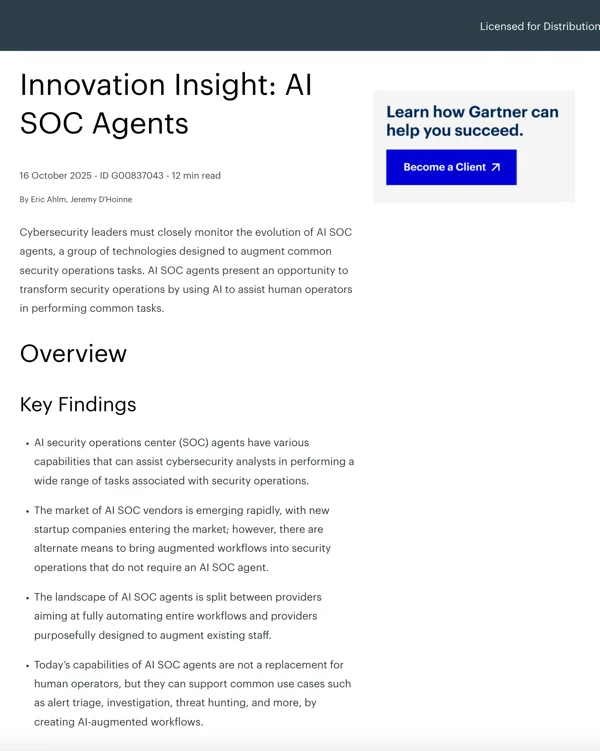
-min.webp)
The role of the SOC manager has evolved. It’s no longer just about overseeing shifts or managing SLAs. SOC managers today are tasked with running security operations that scale, stay consistent, and deliver measurable results, often without a corresponding increase in budget.
Across organizations of different sizes and maturity levels, the same operational challenges tend to rise to the top:
SOC managers are expected to increase alert coverage without expanding analyst headcount. More telemetry, more detections, and more responsibilities stretch the team’s investigative capacity.
Investigations still rely heavily on manual pivots across tools, fragmented context, and inconsistent documentation. The result is alert queues that stall, even when the risk is real.
Leadership wants evidence of progress. Metrics like mean time to triage, analyst throughput, and investigation coverage are tracked closely but are hard to shift without structural changes in how the work gets done.
Solving these problems requires rethinking how the investigative workload is distributed and how much of it needs to be done by humans.
AI SOC Agents are software-based agents that handle alert triage, investigation, and response tasks. They connect to your existing stack, including SIEM, SOAR, EDR, identity, cloud, and case management systems, and operate within current workflows. Their job is to take in alerts, gather the necessary evidence, apply structured investigative reasoning, and produce findings in a format your team can review, escalate, or close.
{{ebook-cta}}
Unlike traditional rule-based automation, AI SOC Agents are designed to think through an alert. They collect, correlate, analyze, and summarize, just like an analyst would, only faster and more consistently.
AI SOC Agents handle the repetitive, high-volume investigative work that bogs down the queue, such as triaging phishing reports, validating endpoint alerts, or investigating identity anomalies. By processing these alerts autonomously or semi-autonomously, they reduce the load on human analysts and extend the team’s investigative capacity.
This allows SOC managers to keep pace with rising detection volumes without sacrificing quality or blowing through budget.
The agent gathers context automatically, querying logs, pulling asset data, correlating across identity, endpoint, and cloud, and presents a structured summary with supporting evidence. This shortens the time between alert creation and documented decision, helping SOC managers hit SLA targets and keep queues under control.
Many SOCs have classes of alerts that get tuned out or deprioritized due to lack of time. AI SOC Agents can process these low-context or low-severity alerts and surface only those worth escalating. That improves investigation coverage without overloading the team.
New analysts can follow the investigative output of AI SOC Agents to see how common alerts are analyzed, which evidence is used, and how decisions are structured. This creates a repeatable way to train new hires that doesn’t consume valuable senior analyst bandwidth.
AI SOC Agents help SOC managers show real progress on KPIs like:
Each of these metrics becomes easier to track, improve, and report on when parts of the investigative process are handled by AI agents that operate with speed and consistency.
AI SOC Agents are tools. They are not policies, judgment calls, or owners of business risk. SOC managers retain control over:
The SOC manager remains responsible for the quality of operations. AI SOC Agents provide leverage to make that job easier to execute and easier to measure.
Get Gartner's guidance on evaluating and adopting AI SOC agents

